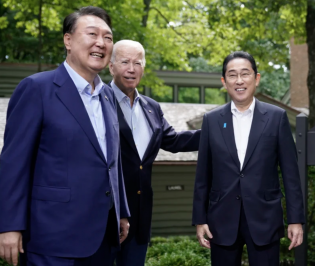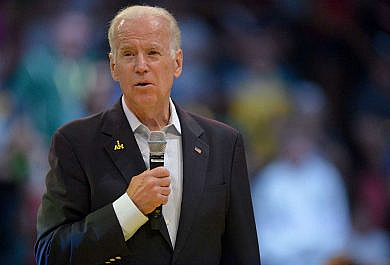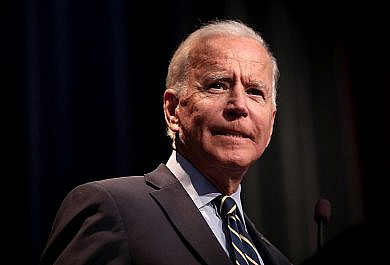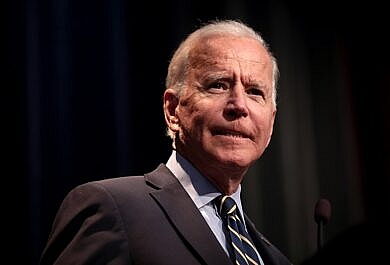President Joe Biden, Prime Minister Fumio Kishida of Japan, and President Yoon Suk Yeol of South Korea agreed on Friday to bolster military and economic cooperation to counter the “dangerous and aggressive behavior” by China.
Summary
President Joe Biden, Prime Minister Fumio Kishida of Japan, and President Yoon Suk Yeol of South Korea agreed on Friday to bolster military and economic cooperation to counter the “dangerous and aggressive behavior” by China.
- At a summit at Camp David, the three leaders agreed to a trilateral consultation process during crises and to work together to respond to regional challenges, including North Korean missile launches. They also agreed to hold annual trilateral summits and military training exercises.
- Deep animosity between Japan and South Korea has long hobbled attempts at closer cooperation between the three countries. Many South Koreans still harbor a deep distrust of Japan, which occupied Korea from 1910-1945 and instituted force labor and forced Korean women to become “comfort women” for Japanese soldiers.
- The new trilateral relationship adds to the network of multilateral alliances the US has joined in recent years to counter the threat of a rising China.
- The 2021 AUKUS security pact with Britain and Australia calls for the US and UK to share nuclear-powered submarine technology with Australia and provisions for cooperation on artificial intelligence, hypersonic weapons, and quantum technology.
- President Donald Trump led the initiative to resurrect the Quadrilateral Security Dialogue (“the Quad’), a strategic dialogue with Japan, India, and Australia.
- Trump’s efforts have been continued by the Biden administration, which participated in the first Quad Plus summit with the four original partners plus New Zealand, South Korea, and Vietnam.
![]()
- Axios covered the leaders’ joint statement, where they said they “strongly oppose any unilateral attempts to change the status quo in the waters of the Indo-Pacific” and seek “stability across the Taiwan Strait.” A Chinese foreign ministry spokesman condemned the summit, saying “”Attempts to form various exclusive groups and cliques and to bring bloc confrontation into the Asia-Pacific region are unpopular and will definitely spark vigilance and opposition in the countries of the region.”
- “The looming threats of China and North Korea shadowed the summit. Both Japan and South Korea are well within range of Pyongyang’s rocket tests, and both nations also have attempted to curb Beijing’s growing strength in the region,” Politico observed. “Biden saluted the “bravery” of both Asian leaders by setting aside generations of tensions between their countries, and he vowed that the new formalized alliance would be ‘unwavering in our unity and unmatched in our resolve.’”
- The New York Times wrote one man was floating in the background of the summit: Trump. “While the former president’s name appeared nowhere in the “Camp David Principles” that the leaders issued at the presidential retreat, one of the subtexts was the possibility that he could return to power in next year’s election and disrupt ties with America’s two closest allies in the Indo-Pacific region.”
![]()
- “The summit comes one month after the defense chiefs of Russia and North Korea met in Pyongyang and agreed to greater military cooperation,” Fox News observed. Defense analysts have suggested the latest Hwasong-19 intercontinental ballistic missile developed by North Korea incorporates Russian technology.”
- “It’s not only the first summit I’ve hosted at Camp David,” Biden told the press, as reported by the New York Post. Biden elaborated on the summit’s historical significance: “It’s the first-ever standalone summit with the leaders of Japan, the Republic of Korea and the United States.”
- The Wall Street Journal’s Gerard Baker elaborated on the “bad blood” between Japan and South Korea that has accumulated over the centuries. “Japan’s historical savagery, and its refusal to accept full accountability for it, continues to run like a trickle of bad blood through Asian diplomacy. The two nations restored diplomatic relations in the 1960s but have had frequent flare-ups over history and territorial issues, bringing them repeatedly to the brink of outright enmity,” Baker wrote. “For the U.S., this has long been a nightmare. Japan and South Korea are its two most important allies in Asia, hosting its two largest regional contingents of military forces.”
© Dominic Moore, 2023






